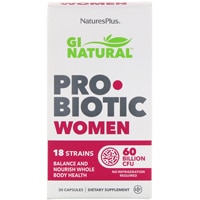Poor gut health is such a common health problem these days, but many people don’t realize how their everyday habits are causing their digestive distress.
One major sign of poor gut health is having a leaky gut, which is when the lining of the intestinal epithelial lining becomes compromised allowing the passage of toxins and bacteria to enter the bloodstream.
Not only is this a digestive system concern, but many major health problems are believed to be caused or made worse by a leaky gut including autoimmune diseases like multiple sclerosis, lupus, rheumatoid arthritis, inflammatory bowel disease, celiac disease and type 1 diabetes (T1D). Other problems linked to a leaky gut include migraine headaches, chronic fatigue syndrome, asthma and skin conditions such as eczema.
You can’t improve gut health if you don’t realize what’s causing the problem in the first place. Some of the most common offenders are surprising and often overlooked, but if they are removed (or added in the case of #2), you just may see a major improvement in your gut health very soon!
What to Avoid if You Want to Fix Your Gut
1. Taking conventional painkillers
Do you ever take nonsteroidal anti-inflammatory drugs, or NSAIDs for short? They’re one of the most commonly used pain relievers in the world. While they may take away your pain, they have some other highly unwanted side effects, especially when it comes to gut health.
While they are many examples of NSAIDs, there is one thing they are all known to have in common: damage to the gastrointestinal tract as a common side effect. So this means that taking these conventional anti-inflammatory painkillers can negatively affect the health of your stomach as well as your esophagus and small intestine.
According to Byron Cryer, MD, a gastroenterologist and spokesperson for the American Gastroenterological Association, over half of all bleeding ulcers are the result of taking NSAIDs.
The more frequently or longer you take NSAIDs, the worse the effects. And in addition to major gut concerns like ulcers, NSAIDs are also linked to heart problems, kidney damage and high blood pressure.
2. Lack of probiotics
Probiotics are the “good” live bacteria that line the digestive tract and not only play a key role in nutrient absorption, but also help the body to fight off infection. Your gut contains both beneficial (probiotic) bacteria as well as harmful bacteria and you always want the probiotic bacteria to be the winning team.
If you’re not consuming probiotics in your diet and/or taking a probiotic supplement regularly then you run the risk of unwanted bacteria or fungus affecting the body in a negative way. Candida albicans, more commonly known simply as “candida”, is an example of a fungus that can live in the body without causing harm until overproduces.
To keep your gut flora in a state of optimal balance, try to consume probiotics foods like miso, tempeh, kombucha, kefir, natto, and kimchi regularly. You can also take high quality probiotic supplements.
3. Processed foods
Does your diet mainly consist of whole, natural foods? If you’re eating a lot of food that comes in a box or bag (even if it’s from a “healthy” store or company), you may be consuming too many processed foods. These processed foods are often high in sugars, hydrogenated fats and fats while being low in the vitamins, minerals and vital enzymes found in healthy foods like fruits and vegetables.
Gut health (like health in general) is boosted by real, whole foods that are alive and brimming with valuable nutrients. While processed foods (like cereal, cookies, crackers, frozen dinners and soda) are certainly convenient, they’re also linked to really common digestive complaints such as constipation and bloating.
Research has also linked the consumption of ultra processed food with with an overall higher mortality risk.
4. Stress
Maybe you’re aware that your headache or tight shoulders are linked to stress, but you may not have connected the dots between all that stress and your digestive complaints. The gut and brain interact a lot more closely than you may realize, which is why stress as well as anxiety and depression can cause gastrointestinal problems.
According to a scientific review, “Certain stressful life events have been associated with the onset or symptom exacerbation in some of the most common chronic disorders of the digestive system, including functional gastrointestinal disorders (FGD), inflammatory bowel disease (IBD), gastro-esophageal reflux disease (GERD), and peptic ulcer disease (PUD).”
The effects of stress and negative emotions can also be less serious, but result in reoccurring common digestive complaints like diarrhea, constipation, bloating and indigestion.
5. Artificial sweeteners
You may be using artificial sweeteners thinking they’re good for your waistline, but it’s actually been found that consuming them can make you crave sweets even more, opt for sweet foods rather than more nutritious options, and ultimately make you more inclined to gain weight!
And when it comes to gut health, the news isn’t any better. Consuming some of these non-caloric sweeteners may actually alter the bacteria in our guts in a very bad way.
In fact, animal research demonstrates how these sweeteners seem to alter the intestinal bacteria that affect metabolism. Researchers believe that these negative changes to the gut microbiome may promote obesity, especially for someone already genetically predisposed to obesity.




